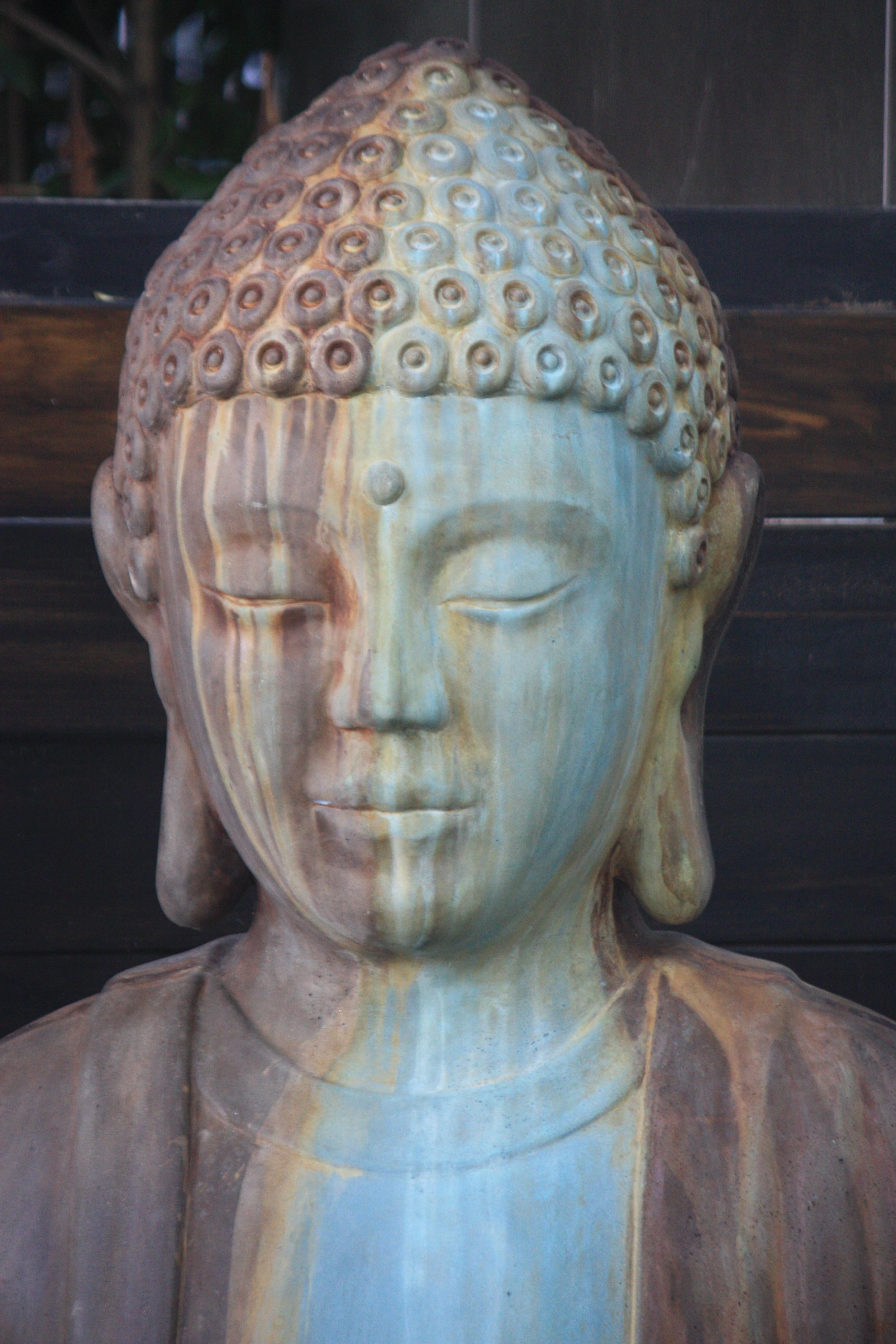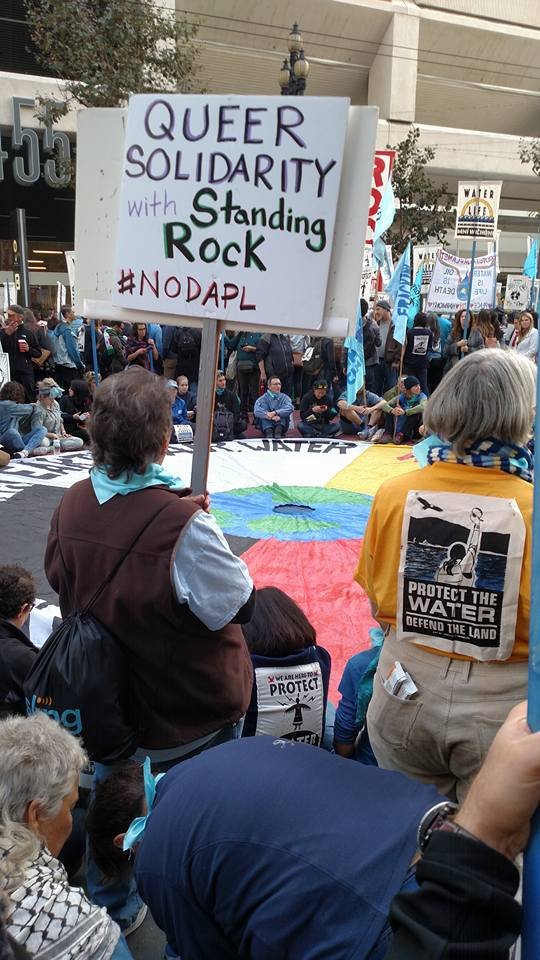Right Renunciation and the Beautiful World of Our Dreams

Long ago, Siddhartha Gautama, the prince who would become the Buddha, leapt over the wall of his family's palace, and left everything behind. It is said that for 29 years, he lived a life of luxury. Everything he needed or wanted was provided. He had a loving, devoted family, including a wife and young child. The commonplace sufferings of the world, including old age, sickness and death, were kept at bay completely. The young prince was also well on his way to becoming king, with the power and authority to lead the entire Shakya republic.
There are many stories and teachings in the Buddhist canon that calm my busy mind, and/or help guide my actions. This part of the Buddha’s biography is not one of them. I can’t relate, either to the experience of such material wealth and power, nor to the Buddha’s renunciation of that wealth and power.
According to recent studies, the top 0.1% of the U.S. population have more wealth than the entire bottom 80%. Since the early 1980s, the wealth of the top 400 people in the United States has tripled in size, while that of the bottom 60% has been cut nearly in half. These staggering shifts were significantly aided by massive tax policy changes that began during the Reagan Administration, and have continued to the present day. The most drastic of these changes came in 1986, when President Reagan signed a bipartisan sponsored bill, which among other things, cut the top tax rate on ordinary income from 50% to 28%, while raising the bottom tax rate from 11% to 15%. In addition, the corporate tax rate dropped from 50% to 35%.
Needless to say, my family was not one of small percentage of families who benefited from these changes. I was 10 years old in 1986, the eldest of two children living in a single parent, white, Midwestern U.S. household struggling to make ends meet. My parents had separated the year before, and while the Reagan Administration was giving massive handouts to the rich, we were living off of my mother’s modest income, supplemented by food stamps. This was the era where ketchup and pickle relish were considered vegetables in school lunch planning, and the era when the stereotype of the “welfare queen” became commonplace. The Reagan Administration’s attack on poor and working class people was especially brutal on African American families, tied to direct assaults on the Civil Rights gains made during the previous two decades. As such, while women on food stamps and other forms of government assistance became the face of poverty, poor black women in particular were the face of “cheating the system.” I raise this to put my own family’s suffering in context. We were very much struggling to stay afloat, and white privilege buffered us from a fair amount of the violence and indignities poor families of color were experiencing at the time, especially African American families.

It was during this period of my life that class consciousness became very real and tangible. While I didn’t comprehend the implications of things like the Reagan tax cuts, the actions of some of the more solidly middle class kids in my school were easy to understand. The cruelest of these kids gave me the unwanted nickname of “Garage Sale,” because most of the clothes I wore were outdated and second hand. While some of my friends had all the latest toys and games, I usually had to be content with things that were popular a few years earlier. Or to go without entirely. And while many of my friends had three meals a day and plenty of snacks available, I sometimes ended up skipping meals. Sometimes, the cupboards were bare, and sometimes I was just tired of powdered milk and boxes of macaroni and cheese. In addition, I was often sad and depressed about my parents' break up and eventual divorce. When my mother worked late, there were times when the only reason I ate dinner was because my younger sister was hungry and needed someone to cook for her.
One of the reasons why I struggle to relate to the early biography of the prince who would become the Buddha has to do with renunciation. Or more specifically, the form of that renunciation. The future Buddha chose to renounce a life of overabundance, after having lived it for nearly a third of his life. That ten year old boy didn’t have such a choice, not in terms of the material world. Like so many others, both then and today, that boy never experienced such an abundance, and had no choice but to go without basic needs sometimes. However, this isn’t to say that I didn’t learn something about what one might call “right renunciation.” When you don’t have much, you learn what it is that you need to survive. To keep going day after day. That rich prince who leapt over the palace walls spent years pushing himself to the edge of death, in part I believe because he had never experienced lack and struggle, and had little idea of how to distinguish basic survival needs from unnecessary desires and wants.
Developing some of these discernment skills in childhood certainly helped reduce the suffering I felt during periods of significant financial struggle as an adult, and I have spent much of my adult life working for a world where no one has to go without their basic needs being met. Where there is no such thing as the kind of outrageous wealth gap we are experiencing right now. Where material wealth is regularly shared, and used to uplift everyone, not hoarded by the few and used to oppress the majority. Because while being poor and/or in poverty can be a good training ground for waking up to the truth of this world, it’s also filled with pitfalls, some of them potentially lethal. It’s extremely difficult to work on liberating your body/mind when you’re starving, or unable to get needed medical care, or living unhoused in extreme weather.

I find that this tension between needs and renunciation is also commonplace among social activists. Especially those who come from spiritual/religious backgrounds where renunciation is a significant feature of the teachings. We’re prone to extending the meaning and vision of “the struggle” beyond the work of structural/societal transformation, to a sense that in order to be “legitimate” justice activists, we as individuals should also be struggling. And not just with identity-based oppressions like racism, sexism and heterosexism, but also financially, materially. Not having all your basic needs met is often considered a sign of being credible, but having movements full of struggling individuals isn’t bringing us any closer to collective liberation. Our true nature is a web of connections and interdependencies, where we are all part of a larger whole, but also each a full expression of that whole with nothing lacking. We collectively struggle to bring some of this to life in our material reality, so that no one goes without their needs being met, and yet it’s still all too common to reproduce in our social movement spaces and groups a version of the poverty which we claim to be trying to abolish.
What would it be like to have social movements that are based in manifesting the kind of interdependent webs of shared material wealth that we want to bring forth in the world? What needs to stop happening in order for more of us to come together across various differences to make this a reality? It’s easy enough to talk about things like dismantling white supremacy and capitalism, but doing it is another thing. And what if we need to find a way to manifest smaller versions of the world we want to see in a still living social body of interlocking, violent oppressions? I’m inspired by social movements in Chiapas, Hong Kong and other parts of the world doing some of this already. Here in the U.S there are some beautiful networks being developed between social movements these days as well, but they are often very fragile and/or time dependent and based on strategic, short term goals.
As a Buddhist practitioner and social activist, I often wonder what it is that life is asking me to let go of. Or, in more stronger terms, to renounce. Whether it's giving up some of your material possessions to benefit others, or abandoning ways of thinking that create harm or unnecessary limits, renunciation can be a form of giving. There are no individual solutions that will make this vision a reality, and it's also true that each of us has the capacity to make shifts (internally and/or externally via resource sharing) that will contribute to the whole. Even though I can't relate to the Buddha's first 29 years of life, and desire a world where no individual or family owns that level wealth, his act of renunciation is still inspiring. A call to all of us working for justice and peace to pause, and consider what is truly needed to bring forth the beautiful world of our dreams.
